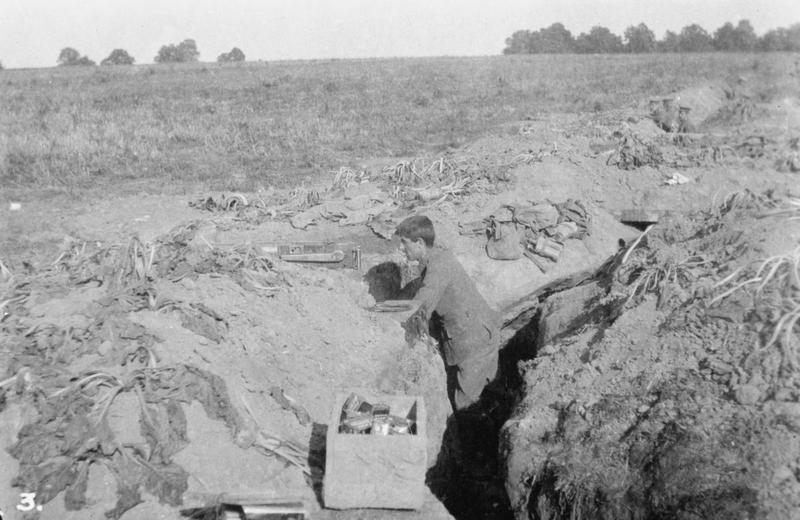Stalemate in the West; Crisis in the East.
A Medal for a Jewish Soldier
Special to The Great War Project
(15 September) A serious battle is unfolding at the French river Aisne.
The Germans, having withdrawn in good order from their defeat at the Marne, are now digging in on the north side of the river Aisne along the ridge above the river.
The Germans have the better positions and the tools to construct superior trenches.
On the Eastern Front, Austria’s army is struggling to hold the lines in Russian-occupied Poland.
The pattern of the war is becoming clear, writes historian Norman Stone. “In the west a stalemate and in the east a more or less constant Austro-Hungarian crisis.”
Both sides are learning an important lesson, according to Stone: “If troops attacked frontally, they would be met by a hail of shell and small-arms fire from positions in the ground that guns could not easily deal with.”
What to do? Both sides come to the same conclusion: move to the open flank northwest of the Aisne. This is a well-known maneuver in warfare, writes Stone, because it allows the attackers to “enfilade” the defenders, that is, fire on a line of vulnerable troops who can’t fire back.
This fighting results in lengthening trench lines headed to the northwest, toward the Flanders coast.
On the Eastern Front, Austria continues to lose battles. The condition of its army worsens. In an attempt to hold off the Russians, Austria loses half a million troops, 100,000 taken prisoner.
The German command realizes it must do something to prop up its ally.
The Germans move a significant force into positions near Cracow, in what is now Poland.
The historian Martin Gilbert notes that the Russian Tsar awards the first Cross of St. George – the Russian version of the Victoria Cross – for exceptional bravery to a Jewish soldier named Leo Osnas.
Gilbert cites a story in the Yorkshire Herald. It reports that “by his bravery in action Osnas has won freedom to the Jews in Russia; he has gained for his race the right to become officers in the Russian army and navy, hitherto denied them, and he has so delighted the Russian government that it has since proclaimed that henceforth Jews in the Empire shall enjoy the full rights of citizenship.”
“In fact,” Gilbert notes, “the Jews of Russia did not receive full citizenship during the war; nor did they escape repeated violent attacks on them by Russian townsmen and villagers looking for scapegoats for Russia’s military setbacks.”

